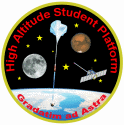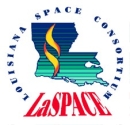



Payload 08 Information
Payload Flight Number:
Institution:
Payload Title:
Distant Aerial Cosmic Radiation Acquisition Package
Student Leader:
Faculty Advisor:
Payload class:
SMALL
Payload ID Number:
08
Mass:
Current:
2.83kg
Serial Downlink:
270mA
Analog Downlink:
yes
Serial Commands:
2
Discrete Commands:
yes
Payload Specification & Integration Plan
Due:
Delivered: yes
Payload Integration Certification
Scheduled:
Actual:
Flight Operation Plan
Due:
Delivered:
Final Flight / Science Report
Due:
Delivered:
Abstract:
The damaging effects of cosmic radiation on human cells and electrical devices have been a significant obstacle in both space exploration and high altitude research. This team proposes to measure and classify cosmic radiation energy in the Earth's atmosphere at various altitudes and various sunlight exposures over a specified flight time. The team has designed and built a package, capable of flying on high altitude balloons, to measure the radiation in the atmosphere, process, and store this data for further analysis. The main components of the package include a scintillation detector, comprised of a Sodium Iodide (NaI) crystal and a photomultiplier tube, a voltage divider, and a multi-channel analyzer. These components are controlled via a single board computer (SBC) and an analog-to-digital conversion circuit. The data produced by the scintillation detector and multi-channel analyzer is processed on the SBC and stored on a memory card. This data will then be downloaded and analyzed after the flight. The West Virginia University High Altitude Research Team is comprised of two faculty advisors, Dr. John Kuhlman and Dr. Mike Palmer, a graduate student in aerospace engineering, a senior in mechanical and aerospace engineering and physics, and a junior in computer science.
Science Report:
Monthly Briefings:
|